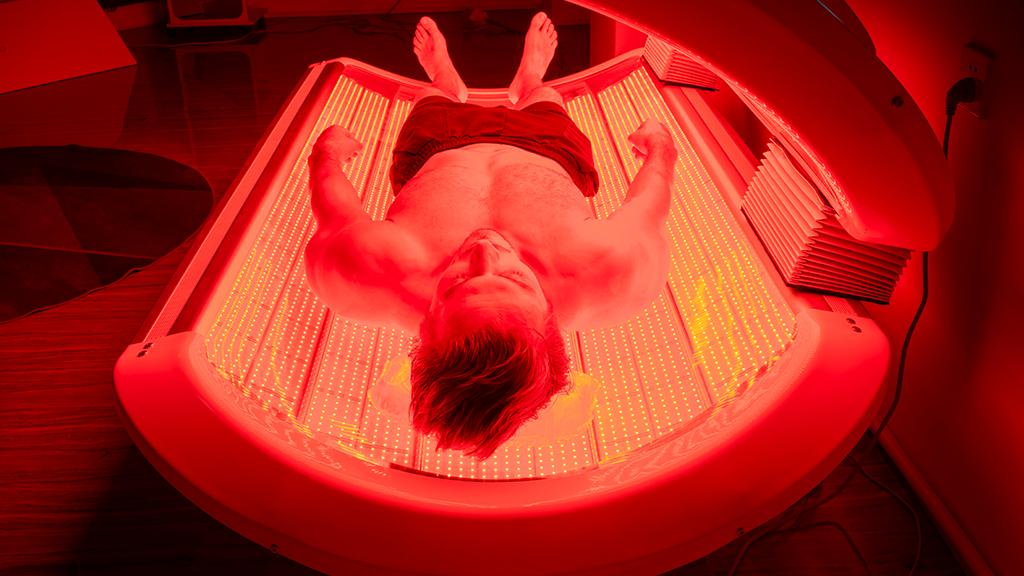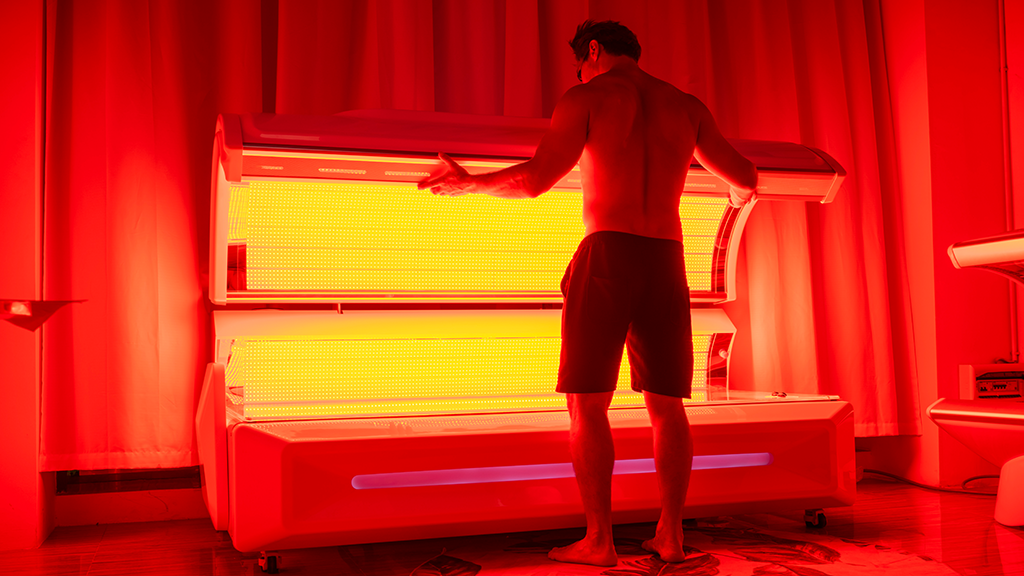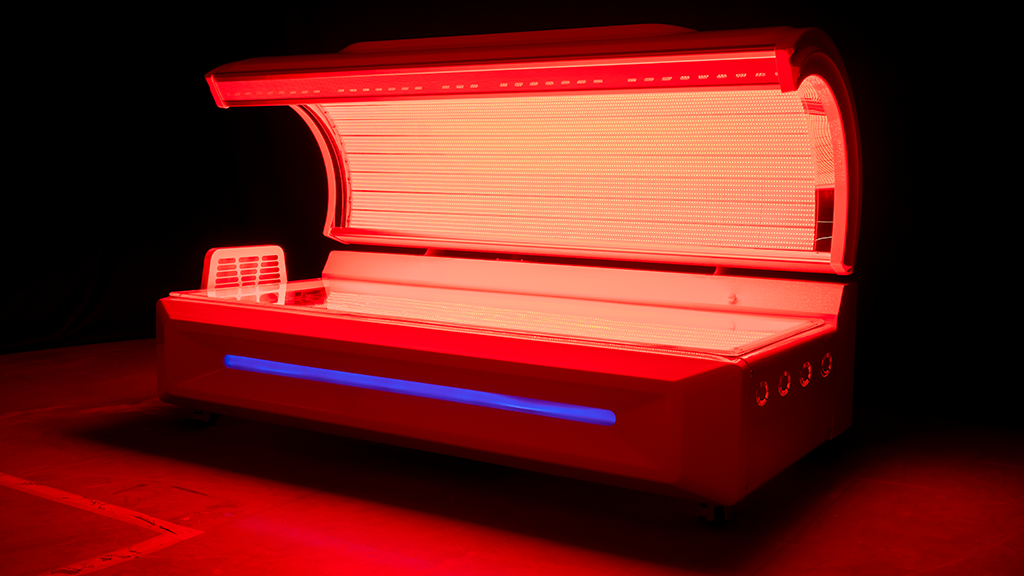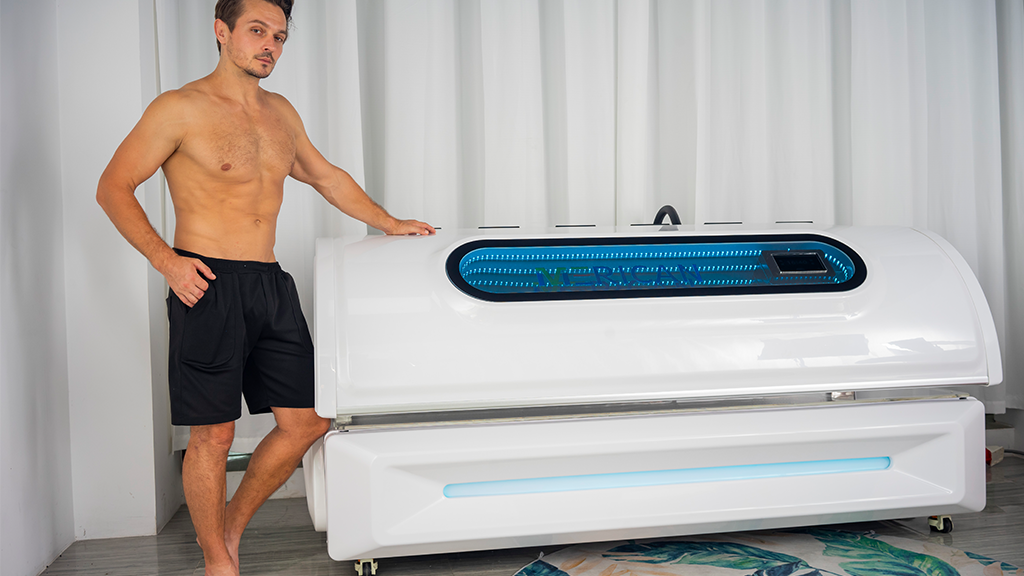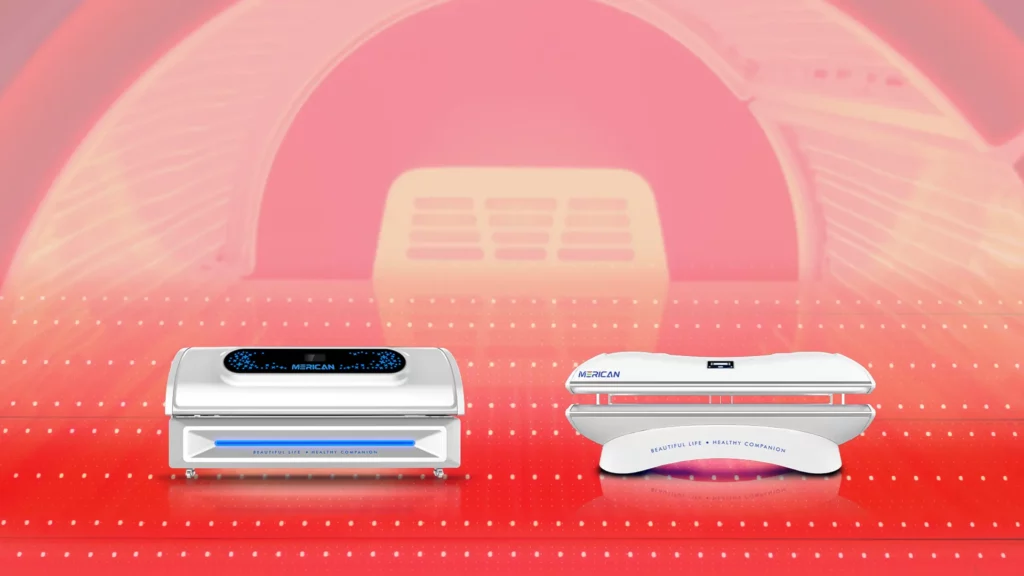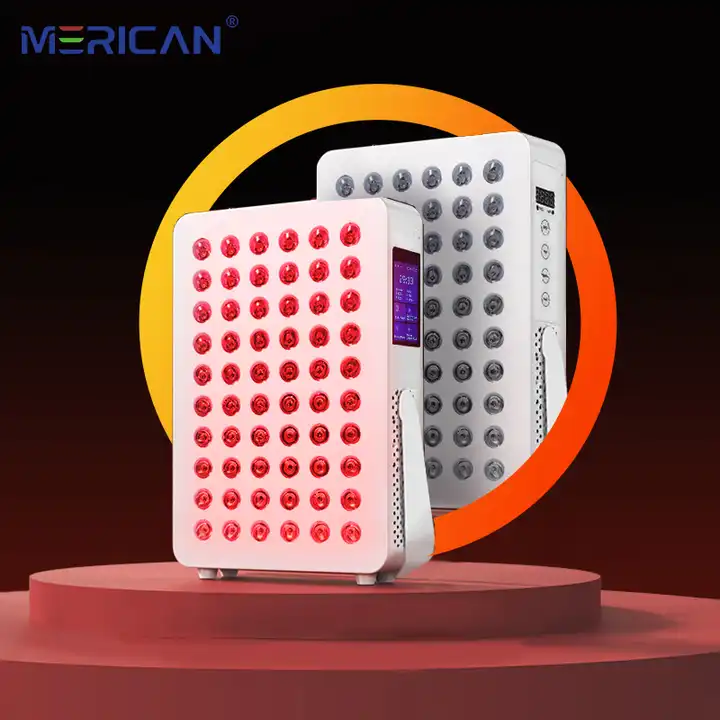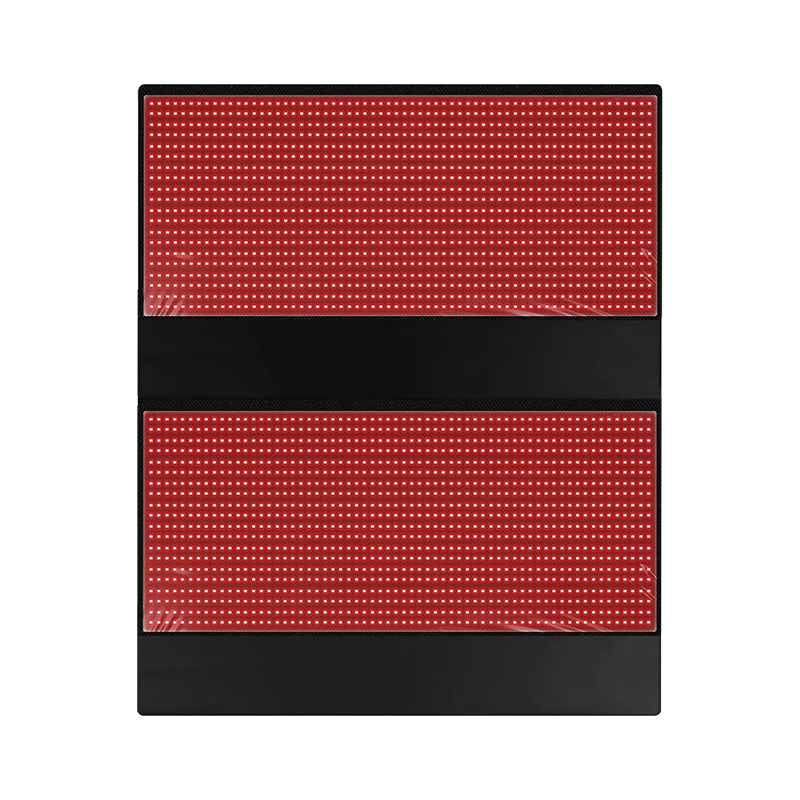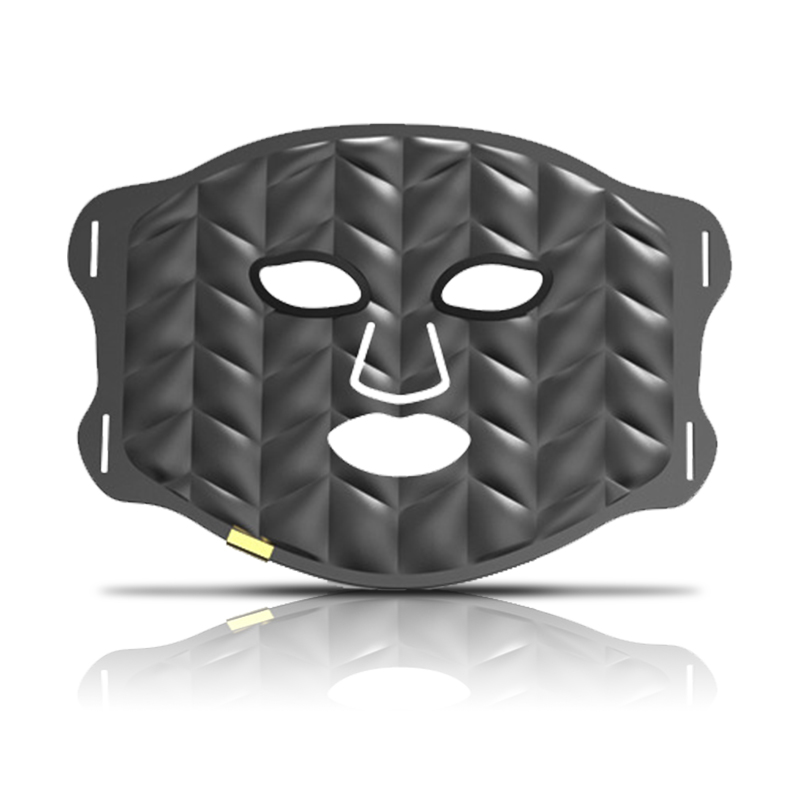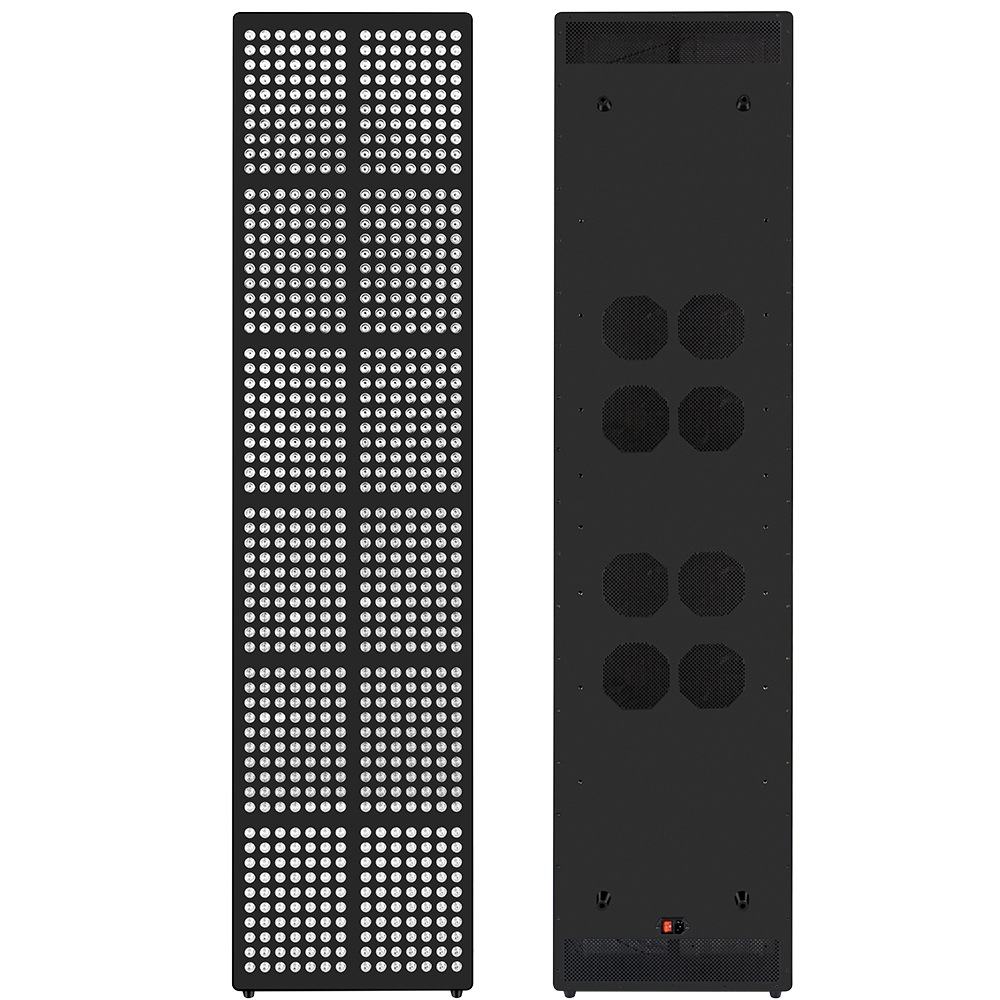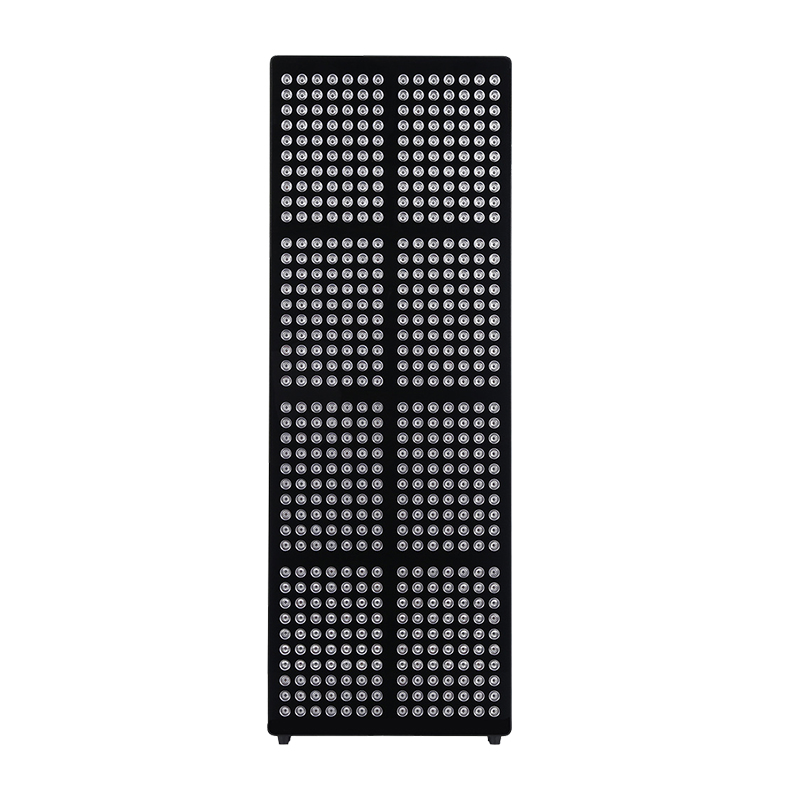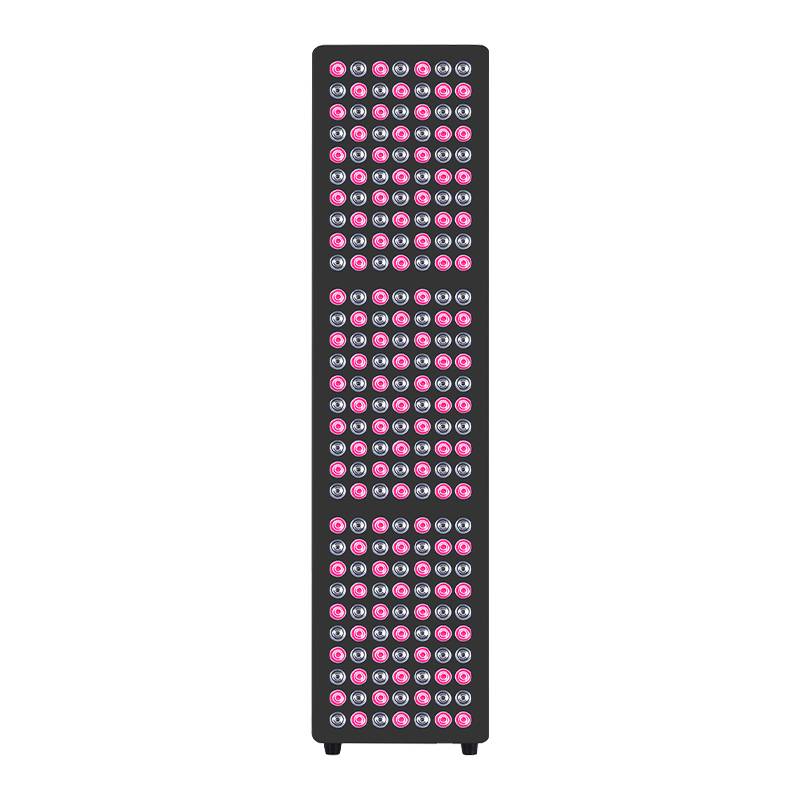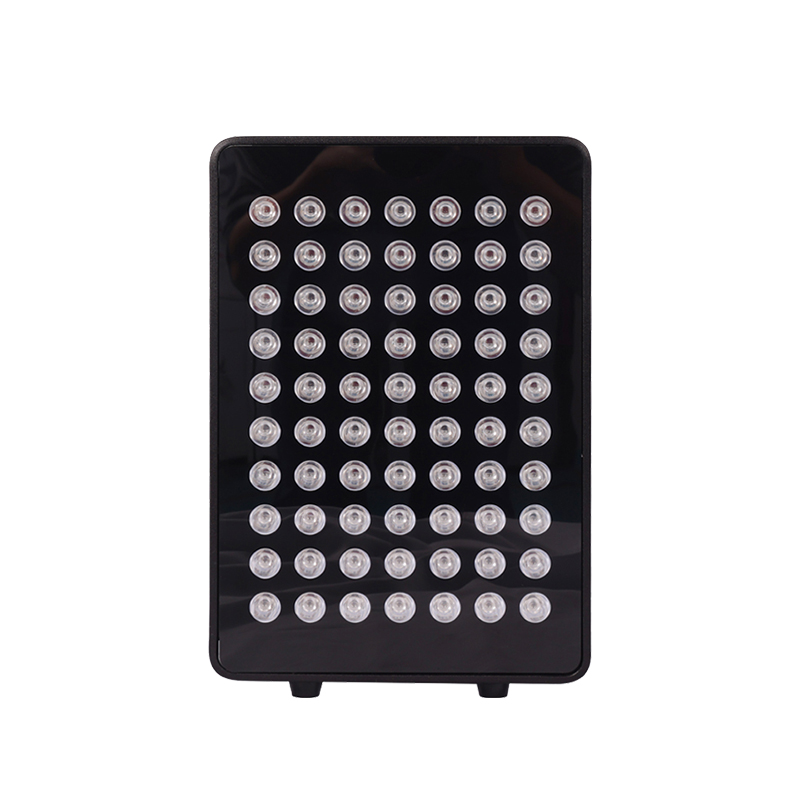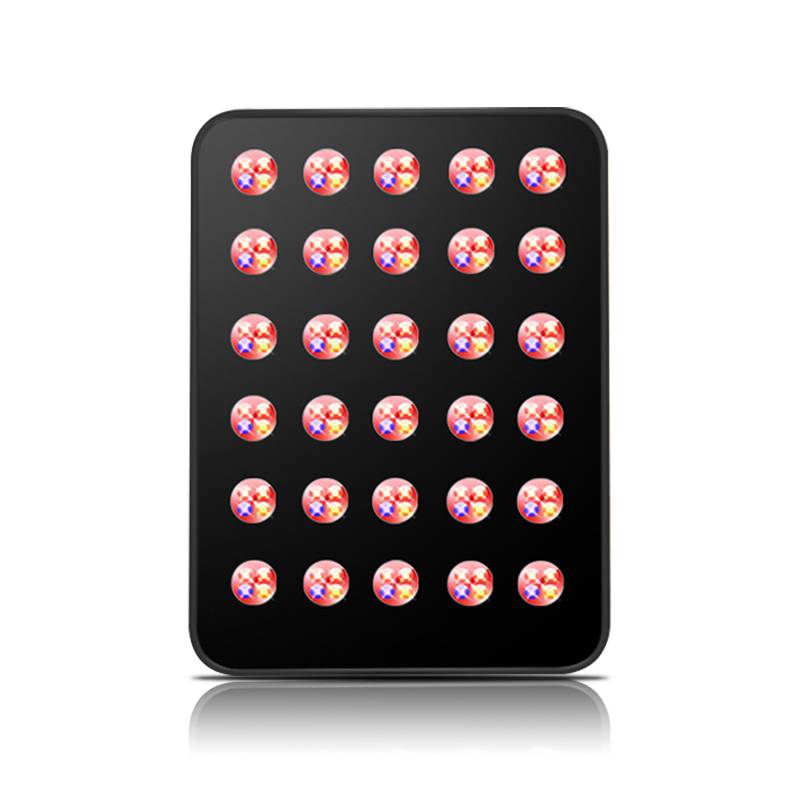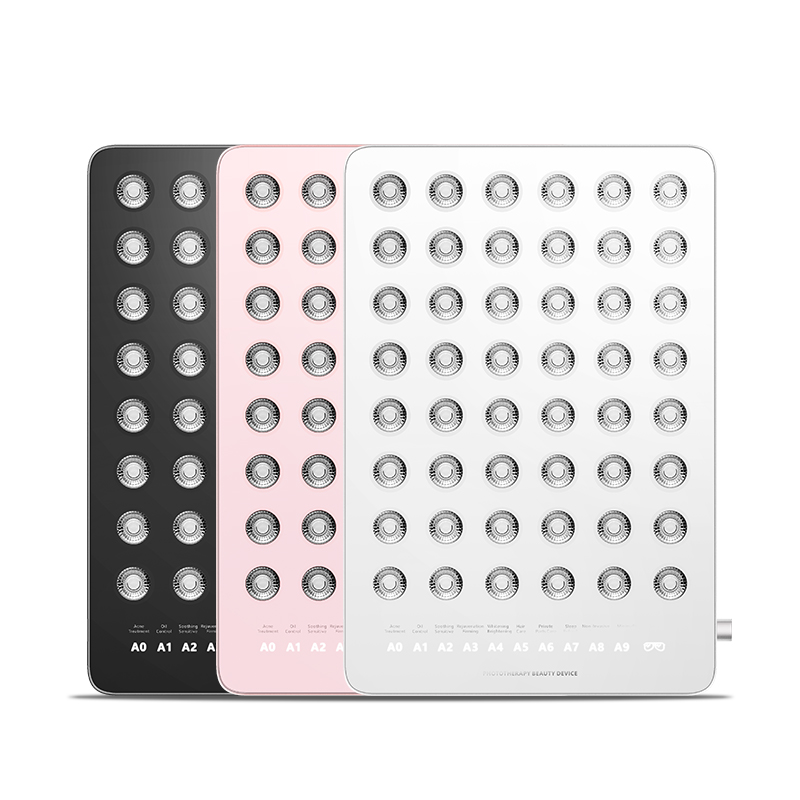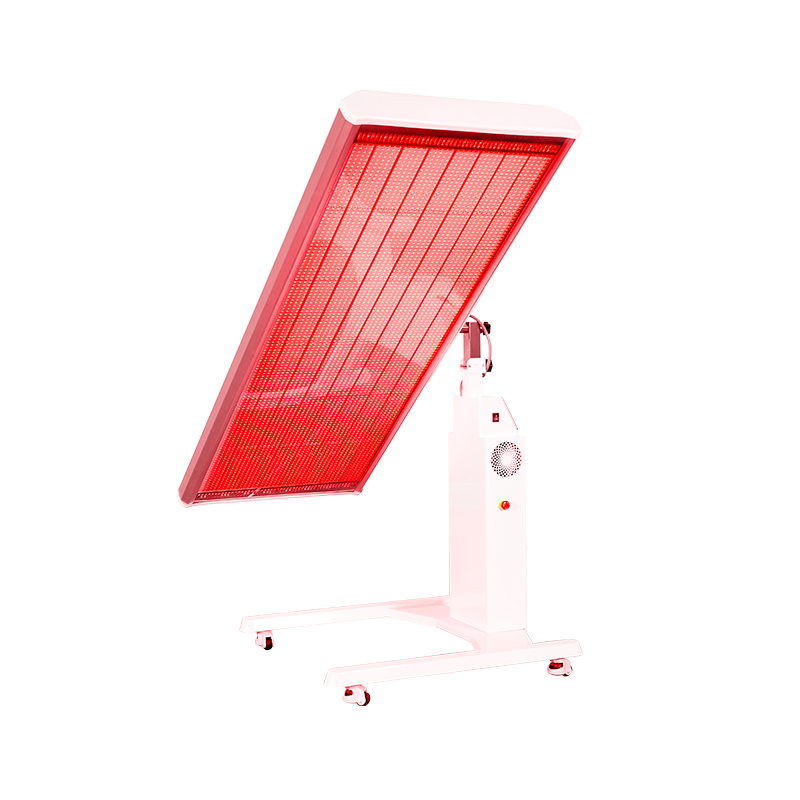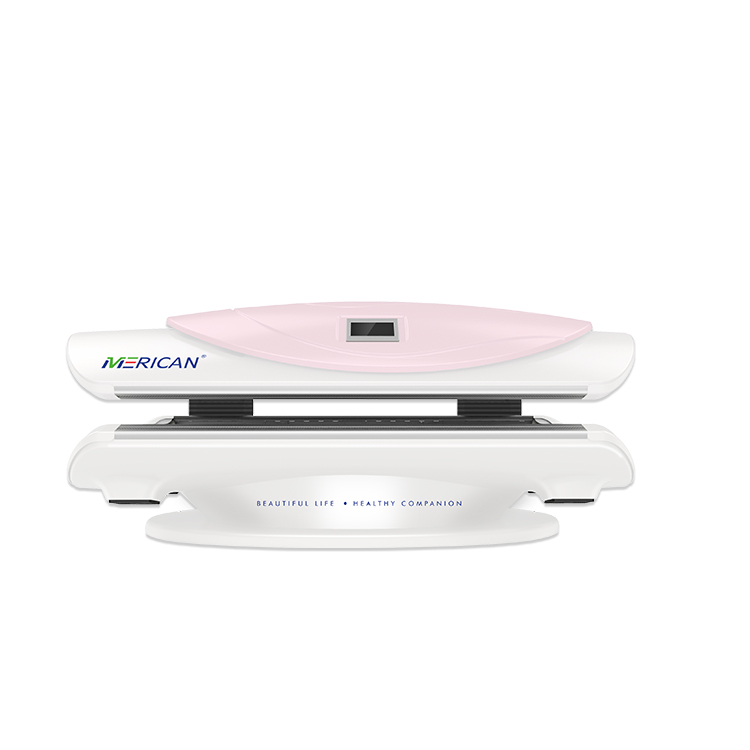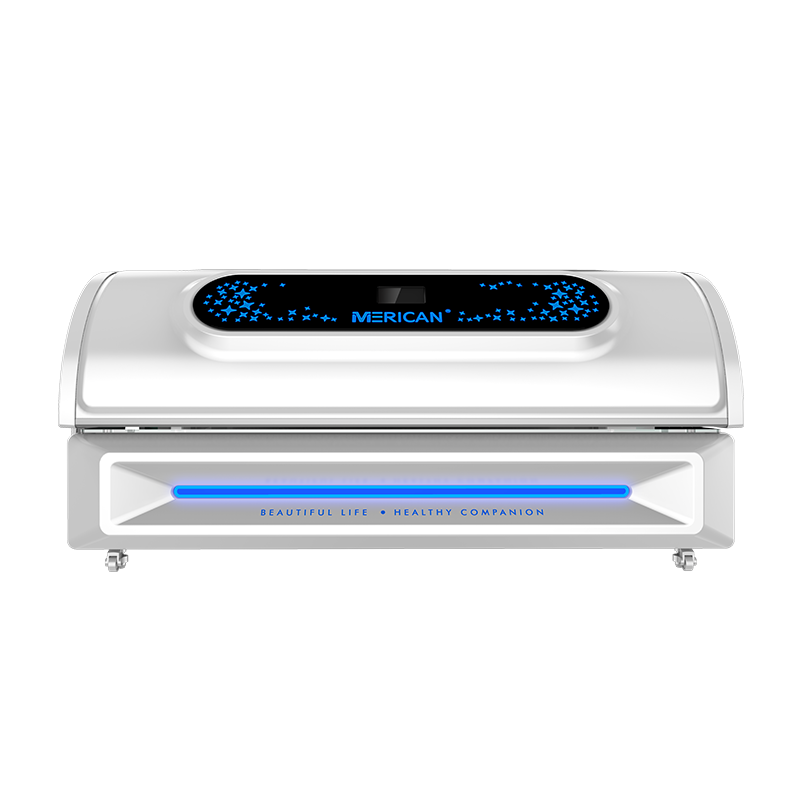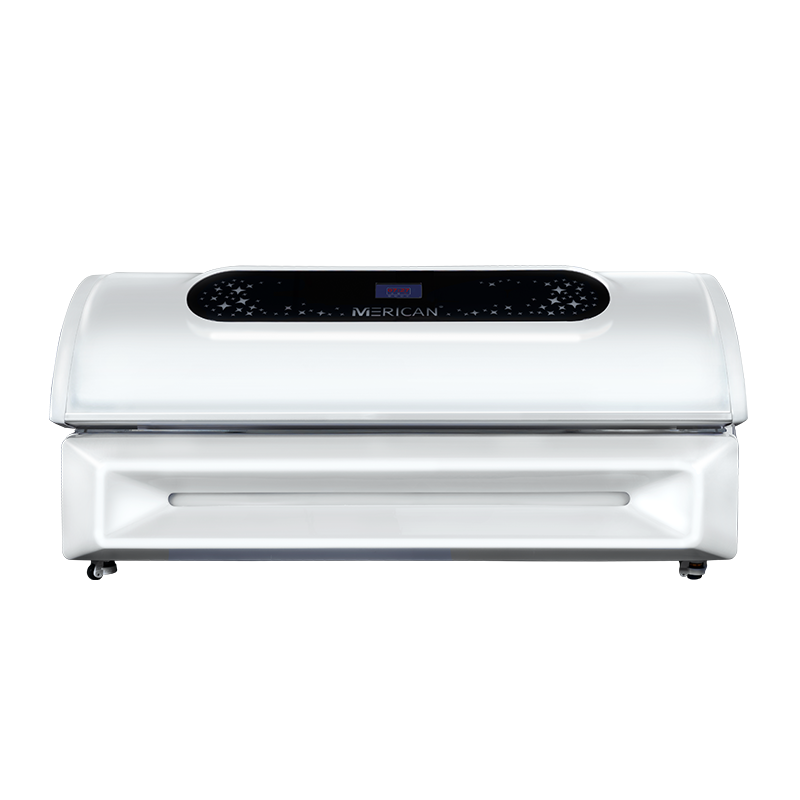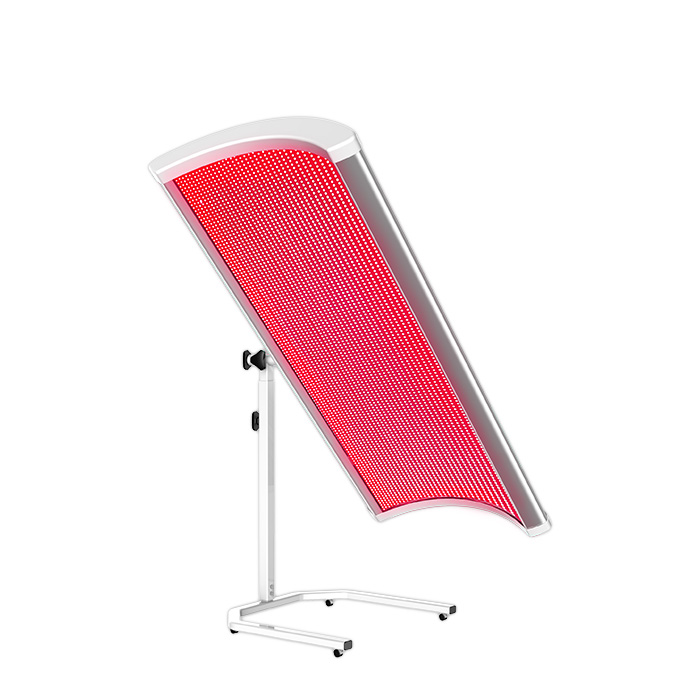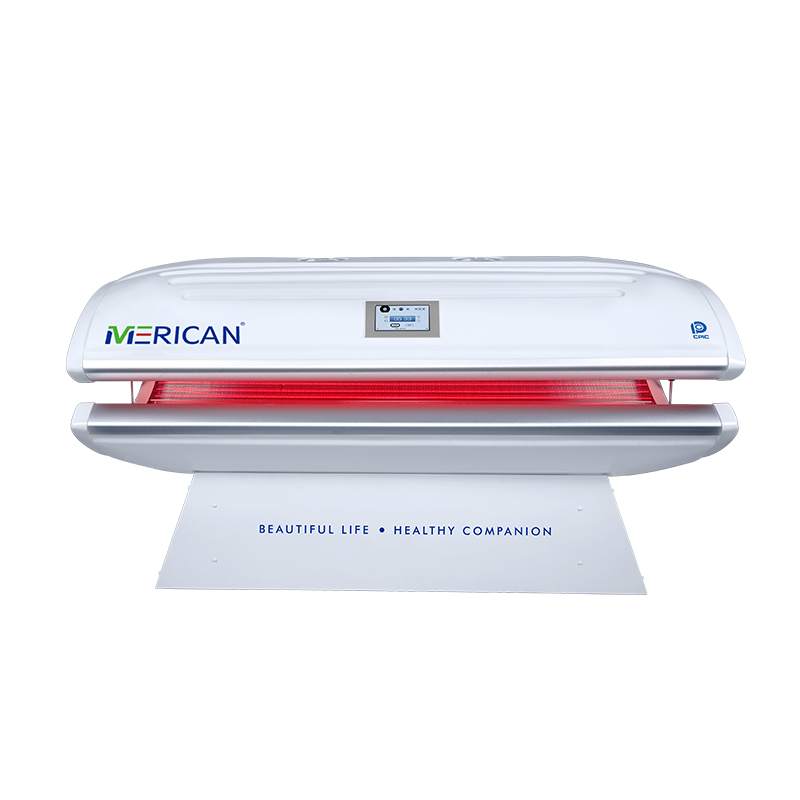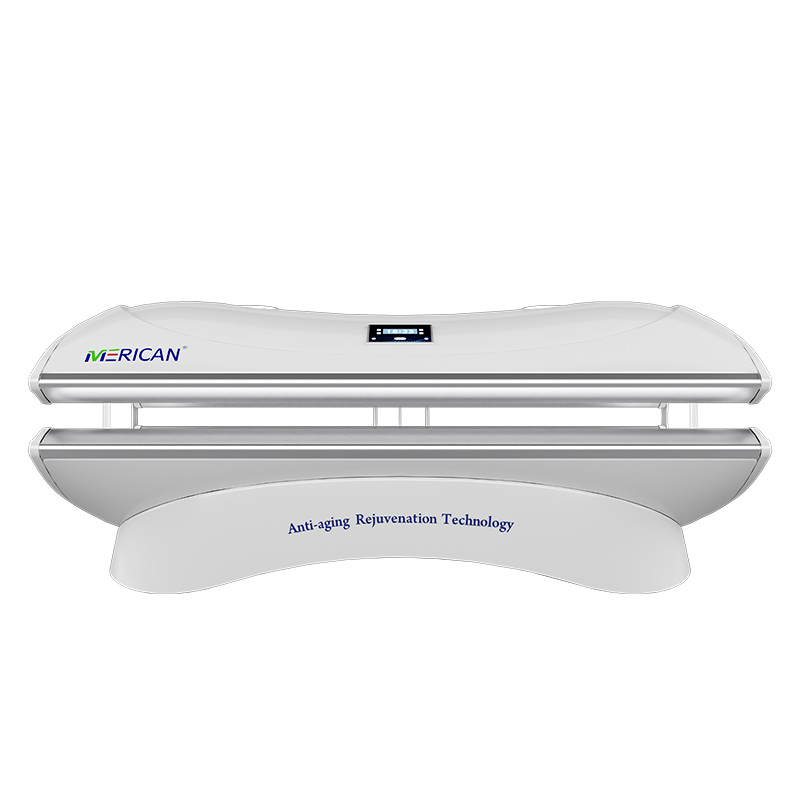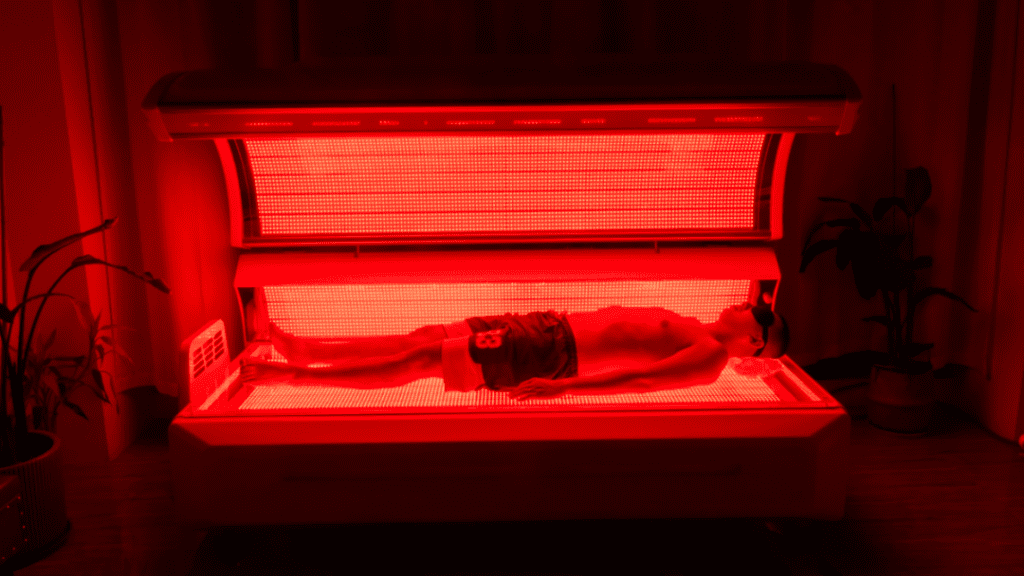
What Is Light Therapy?
Light therapy is known by many names. The formal scientific name is photobiomodulation (previously known as LLLT). Other names include LED therapy, red light therapy, infrared light therapy, LED phototherapy, low-level laser therapy, low-level light therapy, laser therapy, cold laser, and more.
This type of health therapy is not new and is in fact well established for treating various health issues. However, its use for weight loss and fat loss specifically is new, with most research being done in the last 20 years.
All it involves is the application of certain wavelengths of red and near-infrared light to the body. You just shine the light from a suitable LED light source onto your skin.
How Does It Work?
The infrared or red light passes through the skin deep into the tissue and the cells. It stimulates the mitochondria, which are the cell’s powerhouse. They produce more adenosine triphosphate (ATP) that carries the energy the cell needs. The production of more ATP gives you more energy to work out and burn more fat.
How to Lose Belly Fat With Light Therapy?
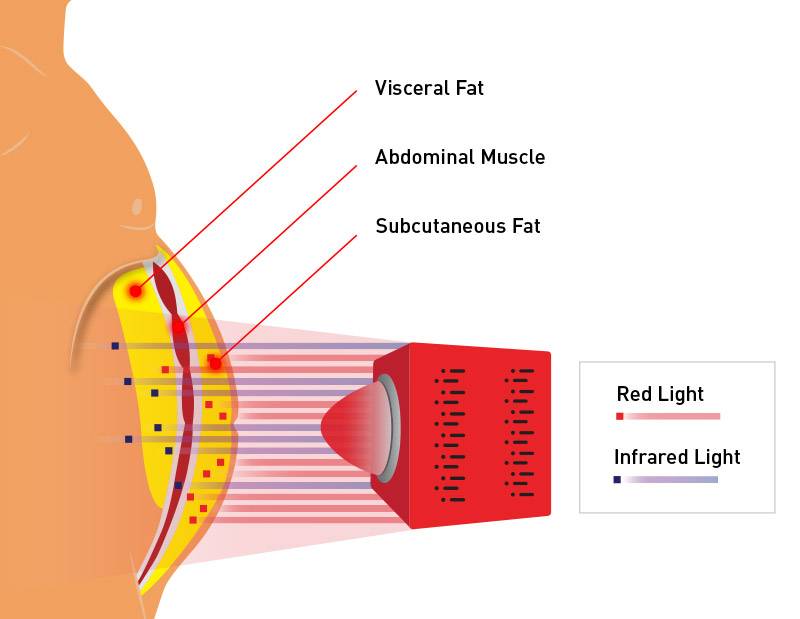
Being deeper inside the body poses a problem for light therapy – the light has to pass through the skin, then the subcutaneous layer, the abdominal muscles, and then potentially through organs like the intestines, just to reach it.
Only a very small percentage of light applied to the skin will get down this far. Two key factors are required to ensure enough light can reach:
- A high light intensity – When you consider that only a small percentage of the light will reach the visceral fat tissue, applying light from a very strong device is the most essential factor. A light intensity of at least 100mW/cm2, but preferably 200mw/cm2 or higher is needed.
- The most penetrative wavelength – Different wavelengths of light have different penetration potential. Near-infrared penetrates deeper than red, which penetrates deeper than orange, which goes deeper than yellow and green, etc. Near infrared around 730 – 840nm has the best penetration potential but the absolute best penetration is in the 740-760nm range. This type of light penetrates so well that it is known as the Near Infrared window (into biological tissue). Some longer near-infrared wavelengths around 1100nm also penetrate well but don’t have the same metabolic effects on our cells, so they are not useful for light therapy.
How to Lose Subcutaneous Fat With Light Therapy?
As subcutaneous fat is quite close to the surface of the body, it is readily available to the wavelengths used in light therapy. The light has to pass through the epidermis and dermis layers of the skin to reach this subcutaneous (also known as hypodermis) layer.
Penetration through the top layers of skin is achieved with a red or near-infrared light of suitable intensity.
As subcutaneous fat is distributed over large areas of the body, using a light device that can emit suitable intensity/wavelength light, evenly, over that same large area is important.
The 2 essential factors when using a light therapy device for subcutaneous fat loss are:
- Moderate light intensity over a large area – light intensity (or power density) generally gets weaker as the distance from the light source increases. At the same time the area that is covered by the light increases. Ensuring a balance between the area covered and light intensity is key to affecting the subcutaneous fat across your body. You should be aiming for around 50mW/cm2 of light intensity or higher to get effects in subcutaneous fat.
- A combination of wavelengths – as the subcutaneous layer can be quite large, depending on the amount and type of adipose tissue, a combination of wavelengths works best to cover all depths evenly. Near-infrared penetrates more readily, so it can be useful to affect the deeper part of the hypodermis. Red light can penetrate through the skin but doesn’t go quite as deep as near-infrared, so is ideal for effects in the fat cells directly under the dermis.
Key Benefits of Red Light Therapy
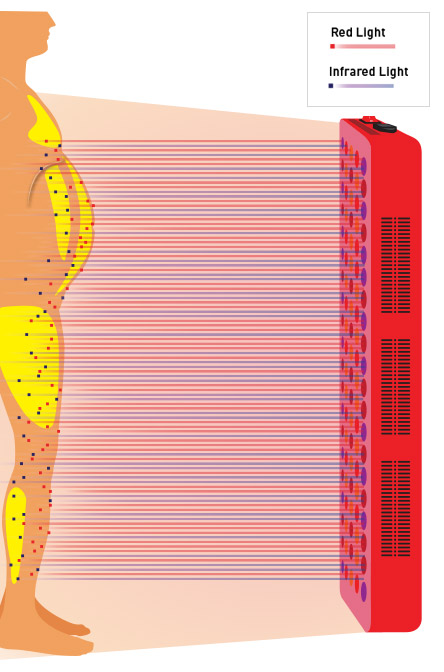
The process also temporarily breaks down part of the cell membrane. It allows the fat in the cells to leach out into the space between the cells. The cell shrinks, and the body removes the fat through the natural waste removal process.
Red light therapy (RLT) is a treatment that involves using low-wavelength red light to address various health and cosmetic concerns. Here are some of the key benefits of red light therapy in more detail:
No Downtime
- Efficiency: Each session typically lasts between 10 to 40 minutes, making it convenient to fit into a busy schedule.
- Immediate Resumption of Activities: Unlike surgical procedures that require significant recovery time, you can go back to your daily activities right after a session.
Non-Invasive
- No Surgery Involved: This non-invasive approach eliminates the need for cuts, anesthesia, or extended recovery periods.
- Minimal Risk: Unlike major surgeries, there is no risk of surgical complications or permanent changes to your body.
Sculpting and Contouring
- Targeted Fat Reduction: Effectively targets stubborn fat areas that are resistant to diet and exercise.
- Natural Aesthetics: Enhances body contours in a natural-looking way without the need for invasive procedures.
Weight and Obesity Control
- Enhanced Energy Levels: The therapy can boost your energy, making it easier to maintain an exercise routine.
- Metabolic Support: Helps in regulating weight by improving your body’s ability to manage fat.
Extra Energy
- Increased ATP Production: Red light therapy aids in increasing adenosine triphosphate (ATP) production, which is the energy currency of cells, helping to boost overall energy levels.
- Enhanced Workout Performance: Post-therapy, you’ll likely feel more energized to engage in physical activities.
Painless
- Comfortable Experience: The process is essentially pain-free and doesn’t involve heat, reducing concerns over burns or discomfort.
- No Negative Side Effects: Unlike many other treatments, red light therapy is renowned for its minimal side effect profile.
Less Cellulite
- Reduction in Cellulite: By targeting the fat beneath the skin (subcutaneous fat), red light therapy helps reduce the appearance of cellulite.
- Improved Skin Texture: As cellulite diminishes, the skin appears smoother and more evenly textured.
Production of Collagen
- Enhanced Skin Elasticity: Stimulates collagen production, essential for maintaining firm, elastic skin.
- Youthful Appearance: Increased collagen helps to ward off signs of aging, making the skin look more vibrant and youthful.
- Improved Skin Quality: The boost in collagen helps the skin regain its softness and smooth texture.
In summary, red light therapy offers numerous benefits ranging from aesthetic improvements to enhanced energy and weight management. Its non-invasive nature and lack of downtime make it a highly attractive option for those looking to improve their overall health and appearance without undergoing surgical procedures.
For more information on the benefits of red light therapy, contact us at email:support@merican.com.cn

